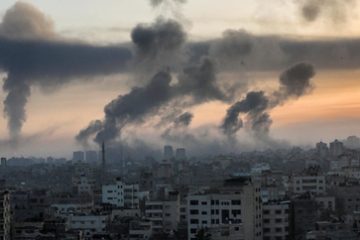
After Gaza: Prospects for a political solution to the conflict
Despite the appalling course of events since 7 October, the continuing fighting and the suffering of the bereaved and displaced in Israel and Gaza, people are beginning to ask where this will all end, how it will end, and even whether it will end? It is essential to address these questions now, because a lasting solution can only be found once people on both sides have some hope for the future The emergence of the two-state solution Since the 1917 Balfour Declaration declared support for a Jewish homeland in Palestine and fuelled the two growing national movements of Jews and the Palestinian Arabs, there have been only three possible solutions to the question of who lives in the land between …
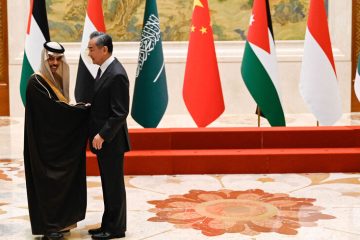
China on Israel-Palestine: Positioning Itself as an Empathetic Great Power?
Almost a week after Hamas launched a surprise attack on Israel on October 7, China’s foreign minister, Wang Yi, called for a global peace conference and a ceasefire. China’s messages can be boiled down to three main points: 1) condemning attacks on both Israeli and Palestinian civilians and the breaking of international law, 2) calling for dialogue between the warring sides, and 3) emphasising the necessity of a two-state solution. China’s messaging follows a similar pattern expressed after previous Israel-Palestine escalations, whereby Beijing refuses to take sides explicitly, urging restraint and promoting peace talks. Chinese-Palestinian & Chinese-Israeli relations: China’s ‘neutrality’ leans in support of Palestine, at least rhetorically. While insisting on both Israel and Palestine’s right to statehood, Wang Yi …

Why the West Should Tread Cautiously when Using Asset Freezes
The war in Ukraine has been raging for almost two years now. In the early days of Russia’s full-scale invasion, Western countries imposed sweeping sanctions on the Russian economy, a significant part of which was made up of asset freezes on some $300 billion in assets owned by the Russian Central Bank and Russian oligarchs. The war has devastated much of Ukraine’s eastern regions, infrastructure, and cities. The West has pledged to help rebuild Ukraine once the war is over, but such a task will cost billions, if not trillions, of dollars to accomplish. One solution advanced by Western lawmakers is to seize the assets that were frozen by sanctions and donate them to Ukraine to finance its reconstruction once …
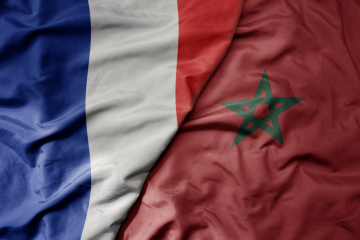
Have we underestimated migration in the Franco-Moroccan diplomatic crisis?
Traditionally close partners, Morocco and France have seen their relationship deteriorate in recent years under a variety of pressures. Much analysis has focused on the role of high politics and diplomatic considerations, such as the question of the sovereignty of Western Sahara. This article argues that while these are important, bottom-up approaches must also be considered. In particular, we highlight the impact of visa restrictions on inter-societal links, and how these affect the core of bilateral relations by damaging the human fabric of politics. The “exceptional partnership” between France and Morocco is a thing of the past, or at least severely damaged. Over the last two years, new crises have erupted at regular intervals. The most recent source of tension …
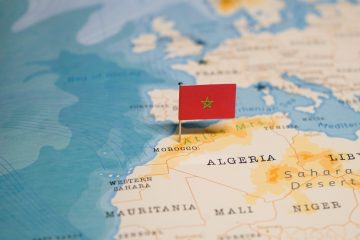
The Moroccan moment: Global engagement and domestic reform
The Moroccan moment: Global engagement and domestic reform Over the past decade, Morocco has revamped its international engagement, aligning it with its economic growth and domestic reforms. Morocco is committed to consolidating its status as a multipolar actor on the international stage. Moving beyond aid dependency, Morocco is firmly committed to fostering equitable partnerships with the global community. The nation’s strong commitment to expanding its trade partnerships and engaging with a wide range of stakeholders clearly reflects its enthusiastic pursuit of multilateral prominence on the global stage. The hosting the International Monetary Fund (IMF) – World Bank 2023 annual meeting in Marrakech in October was a keystone in this transformation. This article summarises a comprehensive report focusing on Morocco’s interactions …
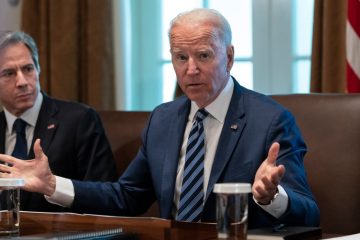
Variable Geometry: What Washington is Getting Wrong
The new buzzword echoing through the halls of the White House is variable geometry. Faced with a panoply of transnational threats, the Biden administration is building fit-for-purpose coalitions between countries and other stakeholders, including local governments, the private sector, NGOs, and academia. Coalitions have been formed to address discrete policy challenges, including COVID-19, food security, providing aid to displaced Ukrainians, and most recently, synthetic opioids. In times of polycrisis, variable geometry suggests that the “America First” policy is no longer viable. Yet, the diplomatic currency of the United States remains zero-sum; official statements about defending the liberal world order continue to echo the end of history thesis, without accounting for the growing demands of middle powers – particularly those in …
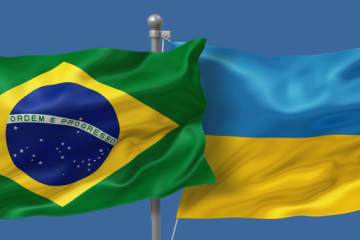
Pacifism as pragmatism: Brazil’s stance on the war in Ukraine
Since the beginning of Russia’s war on Ukraine, Brazil, then still under Bolsonaro’s government, has maintained an official position of neutrality. Under Lula’s administration, this position did not change, frustrating many policymakers in the Global North. So what explains Brazil’s stance on the war in Ukraine? Dawisson Belém Lopes argues that Brazil’s position must be understood against the backdrop of its constitutionally enshrined pragmatic pacifism and diplomatic tradition. Brazil’s diplomatic history and foreign policy tenets Brazil has not always been a pacifist nation in international affairs. At the beginning of the 19th century, when the country gained independence from Portugal, the Brazilian elite was deeply concerned about maintaining the country’s territorial integrity. During this period, interstate wars were fought, particularly …









